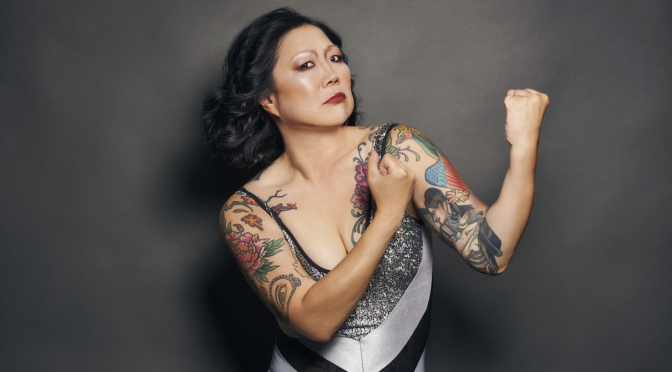“When I see the violation of civil rights, it inspires me. We have a need for talking about what’s going on, and activism is really important. We need to talk about racism, homophobia, climate change, and I am grateful for the ability to be an activist.”
In order to solve social problems, society must admit there is a problem and then discuss it openly and honestly in order to find ways to fix it. Sadly, too many problems persist because it can be very uncomfortable to discuss the issues surrounding those problems. Thankfully, Margaret Cho isn’t bothered by a little discomfort and uses her fame to speak about social injustice with raw honesty. Her comedy routines boldly discuss the issues of LGBTQ rights, sexual assault, racism, and mental health, but just as the issue begins to make people uncomfortable she tosses in some appropriate humor to ease the tension. She is a master at informing and educating her audiences on the injustices in society.
Cho was born in San Francisco to conservative, Korean-immigrant parents. Growing up she spent a lot of time in her parents’ LGBTQ bookstore, where she learned a lot about acceptance and equality. From an early age, Cho recognized that she was different from her peers. And while her parents’ bookstore gave her a safe place to be who she was, being bisexual she realized that a lot of people, both gay and straight, didn’t fully understand what it was to be bi. When asked what advice she would give to her younger self, she replied, “I think it’s just knowing that everything is going to be OK. It’s like what you are is actually valid and you don’t have to be afraid to embrace that. And it’s OK to be different. It’s OK to be different even when everyone else is supposed to be different.”
Margaret Cho has been called “the Queen of all media” due to her success in stand-up comedy, film, television, theater, music, and books. That success was achieved because of Cho’s talent, intelligence, hard work, and diligence in the face of extreme opposition. The first Asian-American woman to have her own television series, All American Girl, Cho faced racism and bullying throughout the run of the series. Among other things, she was criticized for being both too Asian and not Asian enough. Cho eventually had to deal with the scars left by that experience. Her autobiography, I’m the One That I Want, discusses many of the issues she had to overcome because of that. Her success is a testament to her ability to overcome hardships and proof that you can speak out on important issues.
“The thing with Margaret is that she’s been so incredibly outspoken about LGBTQ equity, and not just for the LGBT community as a whole, but with emphasis on LGBTQ youth for sure. And she wasn’t doing it when it was popular to do so, or when other people were doing it. Margaret has been talking about this for decades.”
